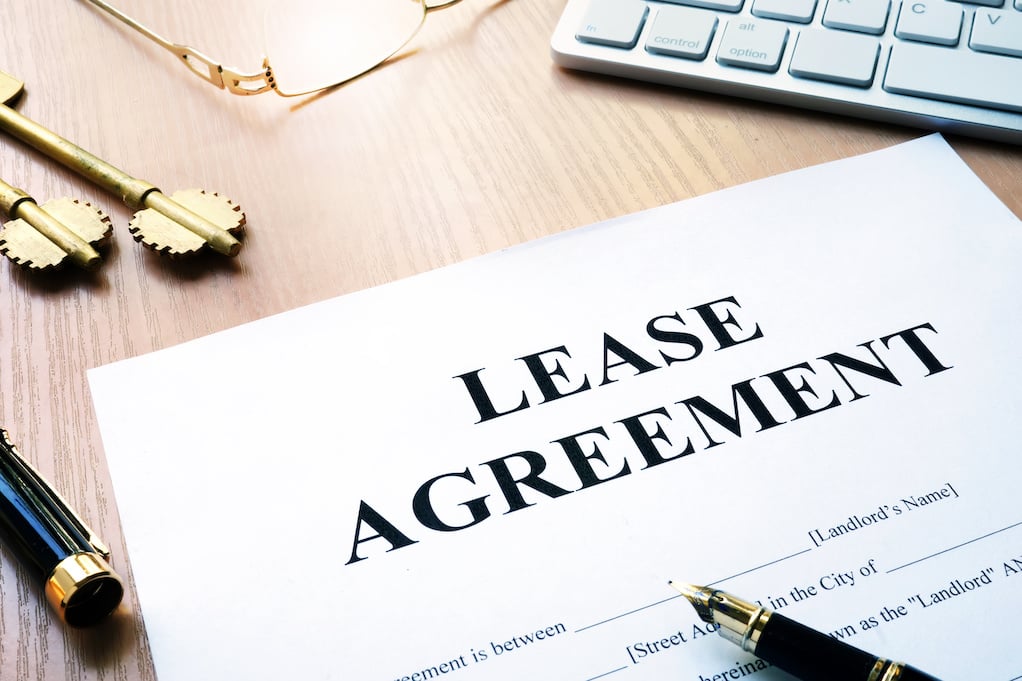In this article, you'll discover:
- Differences between Triple Net and Gross leases and their impact on tenant costs.
- Strategies to effectively negotiate Triple Net leases by managing expenses.
- Essentials of Gross leases, focusing on expense stops and operating costs.
- How working with a True Tenant Rep™ helps secure better lease terms.
As a commercial tenant, you’re no doubt familiar with the two most common types of leases: Triple Net and Gross. Of course, when preparing to negotiate one should be knowledgeable regarding how the different types may implicate the total cost of one’s tenancy.
The different negotiating factors can have influence over the total net value of your lease, so read on. Whether you need a refresher or just some food for thought, you'll learn how to best leverage the value of your tenancy to the fullest extent.
Triple Net Leases
With triple net commercial leases (NNN), the tenant is responsible for paying for all expenses related to their pro rata share of the property, including property taxes, insurance, and maintenance costs. In other words, the landlord is only responsible for the structural components of the building and the tenant is responsible for everything else within their portion. As a result then, tenants negotiate a lower base rent in exchange for taking on these expenses and paying operating expense vendors directly.
Negotiating Triple Net Leases
Negotiating a triple net lease requires careful consideration of the specific costs that will be the tenant's responsibility. It is important to determine the costs upfront and make sure that they are reasonable, as unexpected expenses can quickly eat into a tenant's profits.
Additionally, commercial tenants should ensure that there are limits to the amount of expenses that they are responsible for and that the clause specifies what the landlord’s responsibility is to cover repairs and maintenance.
This is especially critical for older buildings, which are in turn, more likely to demand maintenance. If the burden is on you to cover those costs in a triple net lease, they can quickly add up, becoming extremely expensive. So, when negotiating, never forget to consider the total prospective value of the lease beyond base rent (and how it may differ across lease types).

The other point to consider is more modern updates to operating expenses. Since there is a push to make commercial buildings carbon neutral, many landlords will be expected to upgrade the power source in their buildings. Obviously, converting to electric can become extremely expensive. If you’re a tenant in a building of this case, your role is to outline which costs may be expected to fall under your budget.
|
“If you have a net lease any new fines may qualify as billable expenses which could create an interesting discussion about whether that can be charged back to tenants.” -Darrel Wheeler of Moody's Analytics |
Any capital expenditures or additions to the building should remain in your landlord’s budget. This is especially true if they will outlast the length of your tenancy. Remember: They’re upgrading their building. Out-of-code buildings will be far devalued, so by contrast the market value of their property elevates with green standards. So, make sure that you don’t get stuck with the bill.
Full Service / Gross Leases
Gross leases, on the other hand, are leases in which the landlord is responsible for paying all expenses related to the property. This includes property taxes, insurance, and maintenance costs. Tenants negotiate a higher base rent in exchange for not having to worry about these expenses. The key difference in negotiation between these leases lies in the operating expenses.
Negotiating Gross Leases
Determining the price of operating expenses is largely out of the landlord’s hands. Usually, the vendors will set their respective price tags. As a result, there is likely not much negotiating you can do about those costs with your landrord. Similarly, if there are escalations to these expenses, you may not be in a position to get out of paying them. If you are in a full-service lease, your landlord will charge a higher base rent rate to cover increases that OpEx vendors introduce. Landlords will generally pass-through OpEx escalations to tenants.

One of the primary determinants for your OpEx budget in a gross lease is the amount your landlord agrees to cover. With operating expenses, especially in multi-tenant buildings, landlords typically include the base year of OpEx in a full-service office lease. Their portion is known as the expense stop. All costs beyond this stop are passed through to you, the tenant. Learn more about How to Ensure Your OpEx Benefits your Budget
Tenants should be hyper-aware of how the expense stop is calculated because these base-year expenses are fixed for the duration of the lease’s term. You will be responsible for the operating expenses above this base year expense stop. Your landlord will maintain the original expense stop, whether prices remain the same or go up. As a result, the gross rental rate dedicated to covering operating costs will remain the same. By doing so, they are protecting themselves from inflation while leaving you vulnerable to it. In this case, your operating expenses are likely to grow over your lease term.
If you are not careful when negotiating your OpEx, you could be financially responsible for more than you bargained for. If you’re drafting a new lease or in a position to renegotiate, ensure that the following concerns are thoroughly addressed:
- What costs are passed on to you, the tenant?
- How are expenses calculated?
- What is your expense share?
- What controls are on the expenses; are there any caps?
- When are expense increases paid?
When negotiating a gross lease, the tenant representative should focus on negotiating a fair base rent that takes into account the landlord's expenses. But at the end of the day, the total cost of triple net and full service leases should not differ too much when everything is taken into account. Note the following mock price delineations between the types of leases for which the tenant is directly responsible.

Still a main point to consider with gross leases is that your landlord will usually include a property management fee among the operating expense charges. What they charge you for property management is within their direct control. As a result, you have the potential to ask for a percentage cap to avoid excessive fees.
Typically, a property management fee will be around 3-5 percent of the rent. Don’t allow the landlord to pass on more than the typical fees associated with property management. In a tenant-preferred lease, the property management fee would be closer to 3%. Accordingly, if you work with a tenant rep that protects your interests alone, they will push for a similar, low rate.
Additionally, tenant representatives should make sure that the lease includes specific provisions that outline the landlord's responsibilities for maintaining and repairing the property.
Negotiating with a True Tenant Rep™
With a triple net lease, tenants must be aware of the specific costs they are responsible for and ensure that the clause specifies the landlord's responsibility for repairs and maintenance. On the other hand, with a gross lease, tenants should focus on negotiating a fair base rent that considers the landlord's expenses and pay attention to the expense stop and property management fee. Negotiating a triple net office lease requires a more detailed analysis of the costs and responsibilities that will be borne by the tenant, while negotiating a gross lease requires a focus on negotiating a fair base rent that takes into account the landlord's expenses.
Regardless of the lease type, it is important for tenants to thoroughly review and negotiate the lease agreement to avoid unexpected expenses that can impact their profits. And that is why tenants should never go into discussions with their landord unprepared. The best way to protect your interests in a commercial lease is by working with a True Tenant Rep™, a commercial real estate expert who only works for tenants.
At iOptimize Realty®, we have over three decades of experience negotiating leases in the best interests of our corporate clients. We believe in directing commercial tenants to the properties and features that fit their needs best while getting them the best deal on the market. Part of this goal is by making the knowledge of True Tenant Reps™ accessible to corporate tenants everywhere. Subscribe to our blog to learn how to stay on the top of your CRE game and keep up to date with the latest trends and surefire methods to improve your EBITDA.
Wondering where to begin?
Related Content
- 3 Hidden Commercial Leasing Costs Corporate Tenants Need to Know
- Signing a New Office Lease? Beware the Following Office Lease Clauses
- 6 Lease Negotiation Tips From Pro Tenant Reps
- How to Cut Costs in a Commercial Lease: 6 Methods for Tenants







